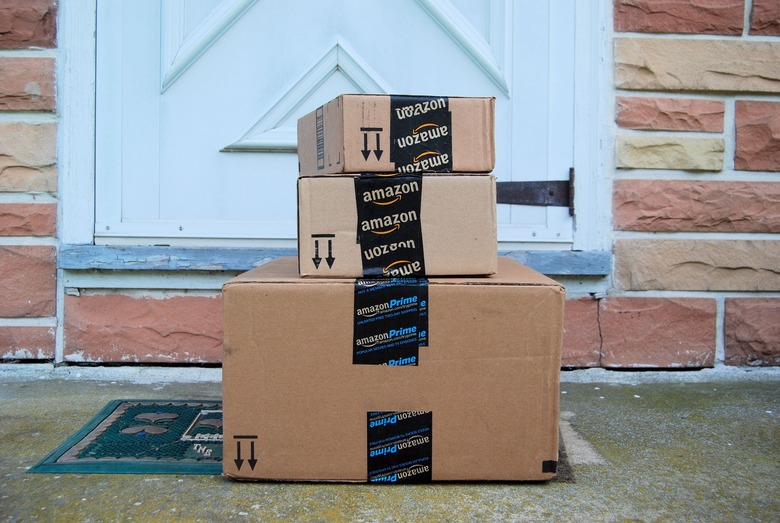Amazon Wine Is Shutting Down Operations
For consumers in areas where wine stores are sparse, ordering choice bottles online is very convenient. Come this year's end, however, enophiles will no longer be able to order their favorite merlot or chardonnay (or anything else) from Amazon Wine, the company's one-stop online shop for over 10,000 wines from around the world.
"As Amazon continues to offer customers additional retail options for buying wine, we will no longer offer a marketplace for wine at this time, and Amazon Wine will close Dec. 31," the company said in a statement, according to Wine Spectator. "Wine will continue to be offered through Amazon Fresh, Prime Now and Whole Foods Market."
The decision to terminate wine delivery could be attributed to "tied-house" laws, which prohibit alcohol beverage retailers from profiting off other suppliers in exchange for advertising their products. When Amazon acquired Whole Foods this summer, they inherited retail alcohol licenses in multiple states — technically making them a merchant. Previously, Amazon Wine acted solely as a marketing platform and was able to collect 15-percent fees on every order through wineries' individual licenses.
To make things even more difficult for wine-lovers, since last year, United Parcel Service, FedEx, and other carriers have refused to ship wine from retailers (including Amazon) to most states. The New York Times reports that retail wine shipments will now be accepted only to Alaska, California, Idaho, Louisiana, Missouri, Nebraska, Nevada, New Hampshire, New Mexico, North Dakota, Oregon, Virginia, West Virginia, and Wyoming, plus Washington, D.C. (Some 45 states in all still accept wine shipments that come directly from the producing wineries, however.)
Many states have long had laws on the books restricting cross-border importation of alcoholic beverages, but enforcement has been spotty. That has now changed, and many retailers believe the change in policy comes at the behest of wholesalers, who offer hearty donations to state legislators and other officials. In New York State, for instance, wholesalers have contributed $2.7 million to candidates for office while retailers compare at $678,000, according to statistics obtained by The New York Times.
Wholesalers say that their support for stricter enforcement of interstate commerce laws derives from their desire to protect consumers from fraud, threats to health, and underage drinking. Whatever the impetus, the new policies are bad news for wine retailers.
"The internet has allowed many industries to go forward, but this is sending us backward," Grapes the Wine Company's Daniel Posner told The New York Times.
For a little something to take the edge off — visit one (or all) of the 101 best wineries in America.
